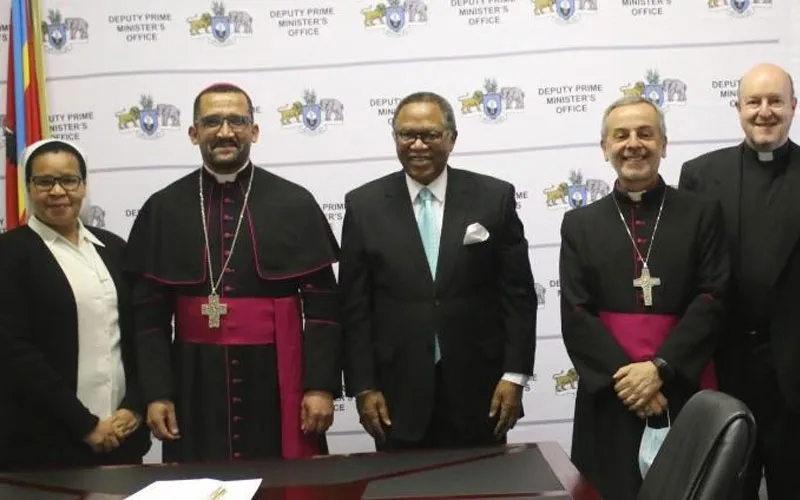Manzini, 08 October, 2021 / 9:35 pm (ACI Africa).
There is need for the people of God in the Kingdom of Eswatini to understand the severity of the instability in their nation and make conscious efforts to build “a peaceful and just society”, the leadership of the Southern African Catholic Bishops’ Conference (SACBC) has said.
Bishop Sithembele Sipuka who was leading a three-nation SACBC delegation on a solidarity visit to Eswatini months after pro-democracy protests were violently suppressed spoke during a meeting with the Emaswati Prime Minister, Cleopas Dlamini.
"The purpose of our solidarity visit, Your Excellency, is to appeal to everybody, their majesties, the three arms of government, civic groups, and every individual, to be convinced of the seriousness of the present challenges and make efforts inspired by solidarity and love that will help in building a just and a peaceful society," Bishop Sipuka has been quoted as telling Eswatini’s Premier Friday, October 8.
In the Friday, October 8 report, SACBC President adds that efforts toward a peaceful Eswatini “is what we see as demanded by the present moment and above all by the very dignity of the human person, the indestructible image of God the Creator, which is identical in each one of us.”
Unrest in Eswatini began in May when university students took to the streets to call for accountability for the death of their colleague, 25-year-old Thabani Nkomonye, allegedly at the hands of the police.








